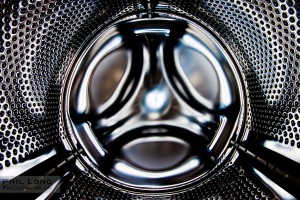
The federal government is coming under intensified pressure to close a highly lucrative loophole that allows welfare recipients to authorise direct automatic payments for high-priced consumer leasing deals on household appliances to come directly out of their benefits – well before they ever see the money themselves.
Labor’s Human Services shadow Minister Senator Doug Cameron has accused his opposite in the government, Human Services Minister Senator Marise Payne, of shirking responsibility for the issue which revolves around Centrelink’s Centrepay facility that lets recipients nominate automatic deductions to be made for bills like rent and utilities.
Centrepay had been designed and intended to allow welfare recipients to better manage regular bill payments for recurring charges for basics like electricity, gas, phones rent. It essentially operates by letting recipients nominate which bills they want to see paid automatically so that they don’t get behind in payments and risk having services cut off.
But the issue of how and why welfare money is being funnelled into arguably exploitive leasing deals for household goods and appliances has flared after a equity broker’s report cautioned of revenue exposure for well-known appliance rental company in the event regulations were tightened.
According to the ABC, a recent Credit Suisse note to clients flagged the possibility of revenue downside attached to around $90 million a year Radio Rentals manages to extract from its customers via Centrepay deductions should payment criteria be tightened.
The rub for Radio Rentals is that, according to the broker note, around customer payments via Centrepay account for nearly half of its revenue.
The $90 million figure has horrified parts of the welfare sector which have questioned how a publicly listed company that sells leases on household goods that operate on steep margins over and above outright purchase prices even managed to get onto Centrepay’s schedule in the first place.
Senator Cameron is incensed that the current Human Services Minister won’t exclude the leasing agreements from Centrepay.
“Since its inception, Centrepay has expanded well beyond its original purpose and now includes consumer leasing companies who charge effective interest rates of up to 40 percent a year to lease and buy household consumer goods,” Senator Cameron said.
“There is growing evidence that these consumer leases are causing financial hardship for people who cannot afford to pay up to three or four times the usual cost of washing machines, TV sets, furniture and mobile phones.”
Once a buoyant mainstream industry when appliance purchase prices were high, consumer leasing companies have been in structural decline since the price of high-tech gadgets like flat screen televisions and even vacuum cleaners have fallen and eroded away margins.
Many believe the consumer goods leasing sector has become increasingly predatory as non-welfare business dwindled and now targets the vulnerable and those insufficiently equipped to make critical judgements.
A key mechanism under fire is the ease with which welfare recipients can simply sign onto deals that automatically reap hefty fortnightly deductions via Centrepay even when they have little appreciation of the total dollar cost of deals they enter into over the duration of the contract.
A church-based welfare worker told Government News that access by household goods leasing companies to Centrepay was never intended to create a new market of poorly informed renters; rather it was an unintended consequence of practical steps to bring immediate but short term relief in the event of a family crisis or emergency when people lost their possessions.
It was suggested that in the event a victim of domestic violence walked out the family home with their children, it was just simpler, more practical and cost efficient to rent appliances for the short term.
Whatever the history, Senator Cameron is demanding that that the government step up and intervene in the sub-market that has been created in its own backyard.
“The Minister could resolve this issue quickly by making decisions on access to consumer leasing through Centrepay,” Senator Cameron said.
He may have a point. The government has already indicated it is looking at extending the application of its Basics Card welfare payment instrument that quarantines what goods can be bought so that items like alcohol and tobacco are excluded – a prescriptive stance that is almost the reverse of ability of clients to enter into consumer leasing deals.
Government News has contacted the Department of Human Services, the Minister for Human Services Marise Payne and for comment.
Enquiries to Thorn Group Ltd, the parent company of Radio Rentals, went unanswered.
Comment below to have your say on this story.
If you have a news story or tip-off, get in touch at editorial@governmentnews.com.au.
Sign up to the Government News newsletter
